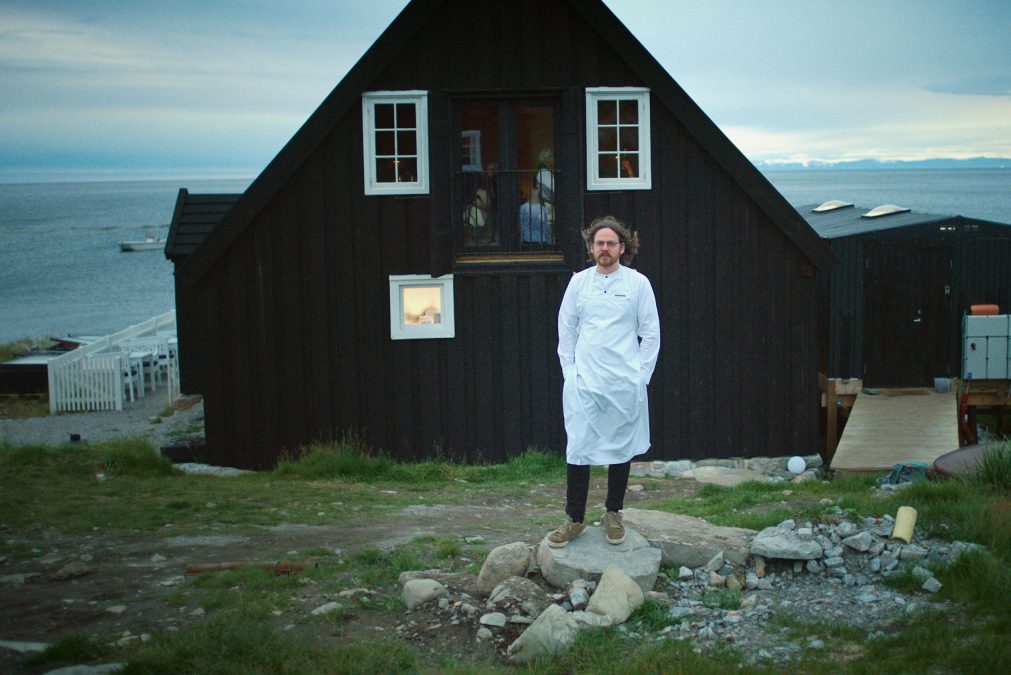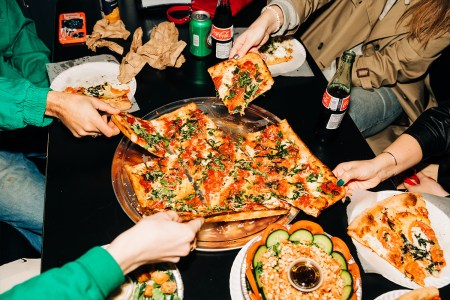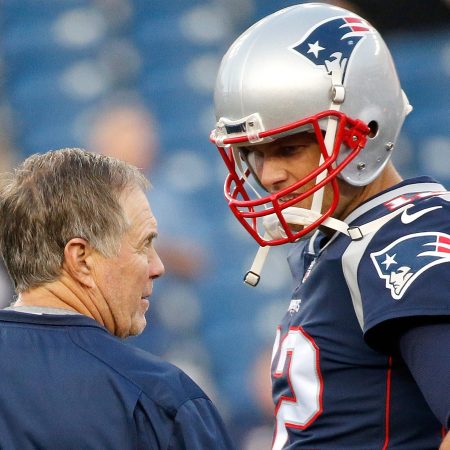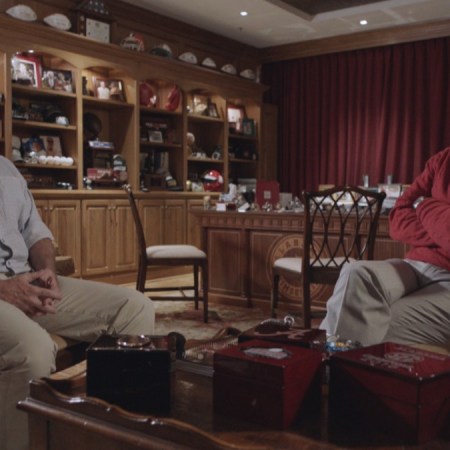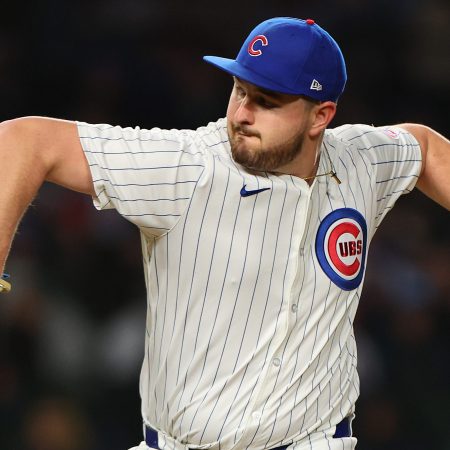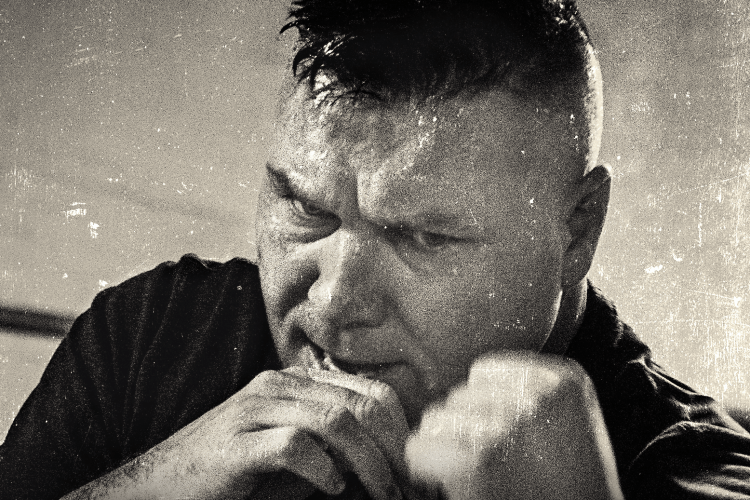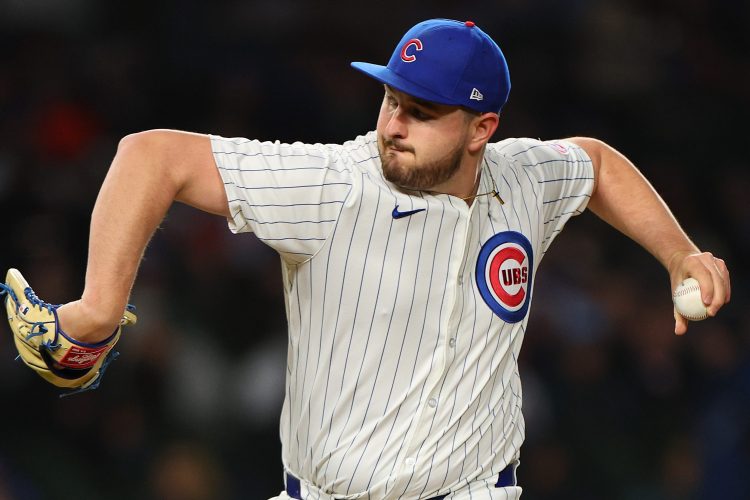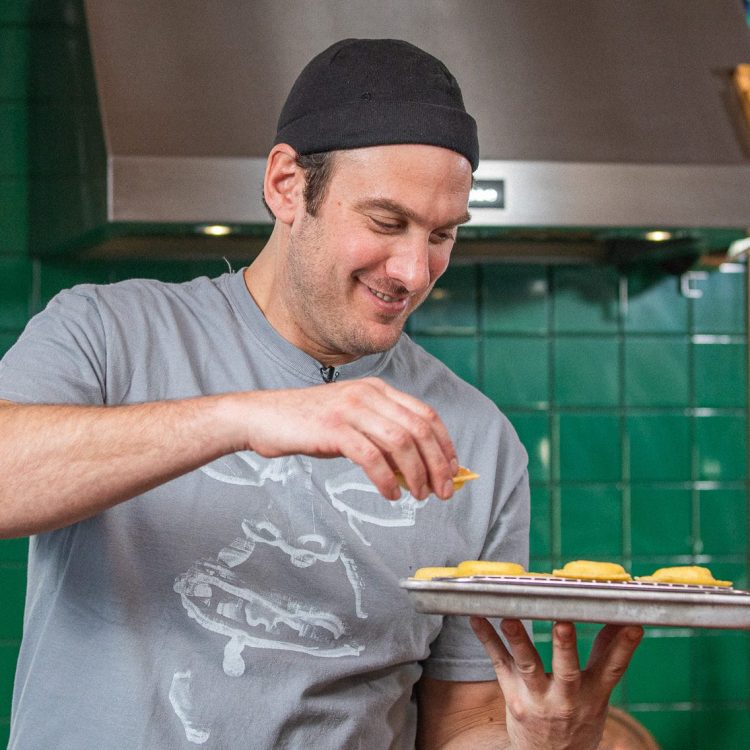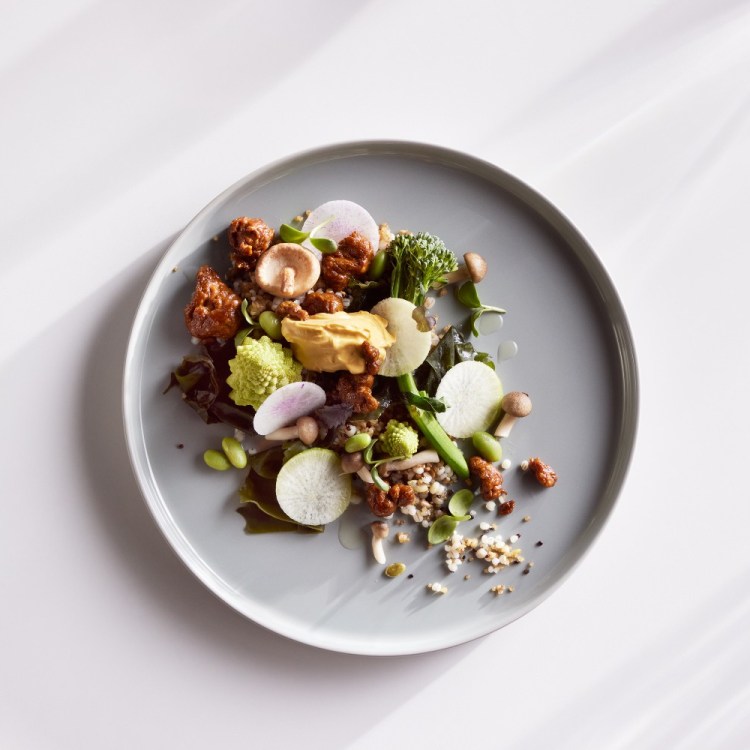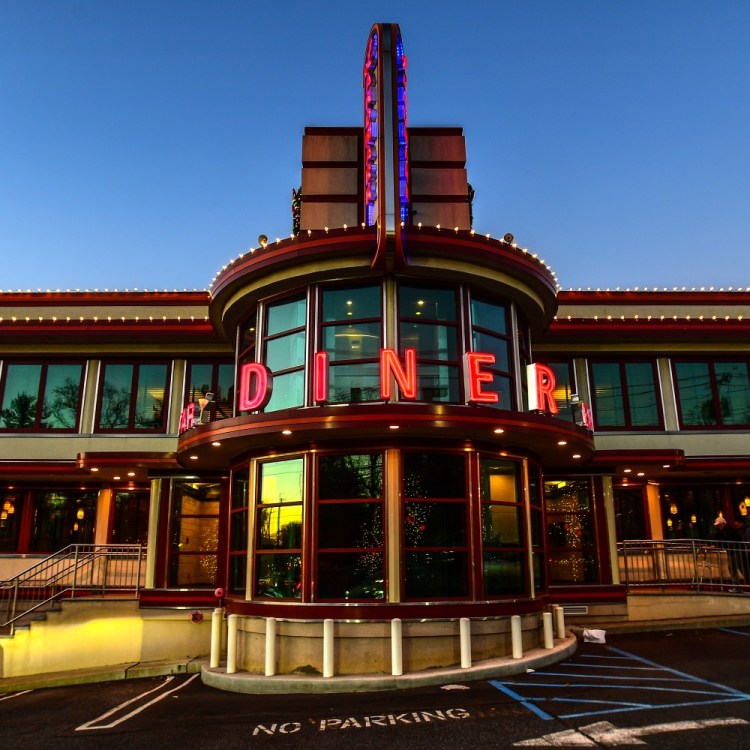Poul Andrias Ziska, the executive chef at double Michelin-starred KOKS in Ilimanaq, Greenland, has seen the 2022 horror-comedy The Menu and enjoyed the film and its mocking of the food-worship culture surrounding an isolated fine-dining establishment helmed by a pretentious chef named Julian (Ralph Fiennes) with an appetite for fare aside from food.
However, Ziska, who earned his first Michelin star in 2017 when KOKS was located in an 18-island archipelago in the north Atlantic known as the Faroe Islands and earned his second two years later, does not see much of himself in Fiennes’s Julian and does not think the movie was satirizing his restaurant, which now sits about the Arctic Circle in the 53-person village of Ilimanaq.
“Maybe it was [based on KOKS]. I don’t know. But, no. I can’t really relate to them, but it was fun. It was entertaining and I liked it,” Ziska says. “I understand the strings they’re trying to connect between our industry and the movie. But yeah, I don’t see myself in his shoes.”
It’s fairly easy to recognize why Ziska doesn’t identify with Julian, even though he operates an eatery with a $300 locally sourced tasting menu (wine and juice pairings are available for an additional charge) that’s open exclusively during the summer and only seats 30 people each night, when you see him in the new documentary The Most Remote Restaurant in the World.
In the film, which documents the restaurant’s temporary relocation from the hard-to-get-to Faroe Islands to the even-harder-to-get-to Ilimanaq Lodge, Ziska is humble, funny and collected as the KOKS team struggles to handle all the challenges one would assume would come with opening a restaurant that’s only accessible via an hour-long boat ride through a collection of icebergs.
With the summer seatings over at KOKS, which may remain in Greenland through 2025, Ziska has some extra time on his hands, and he used some of it to speak with InsideHook about what it’s like working in Greenland as the EC of the world’s most remote Michelin-starred restaurant.
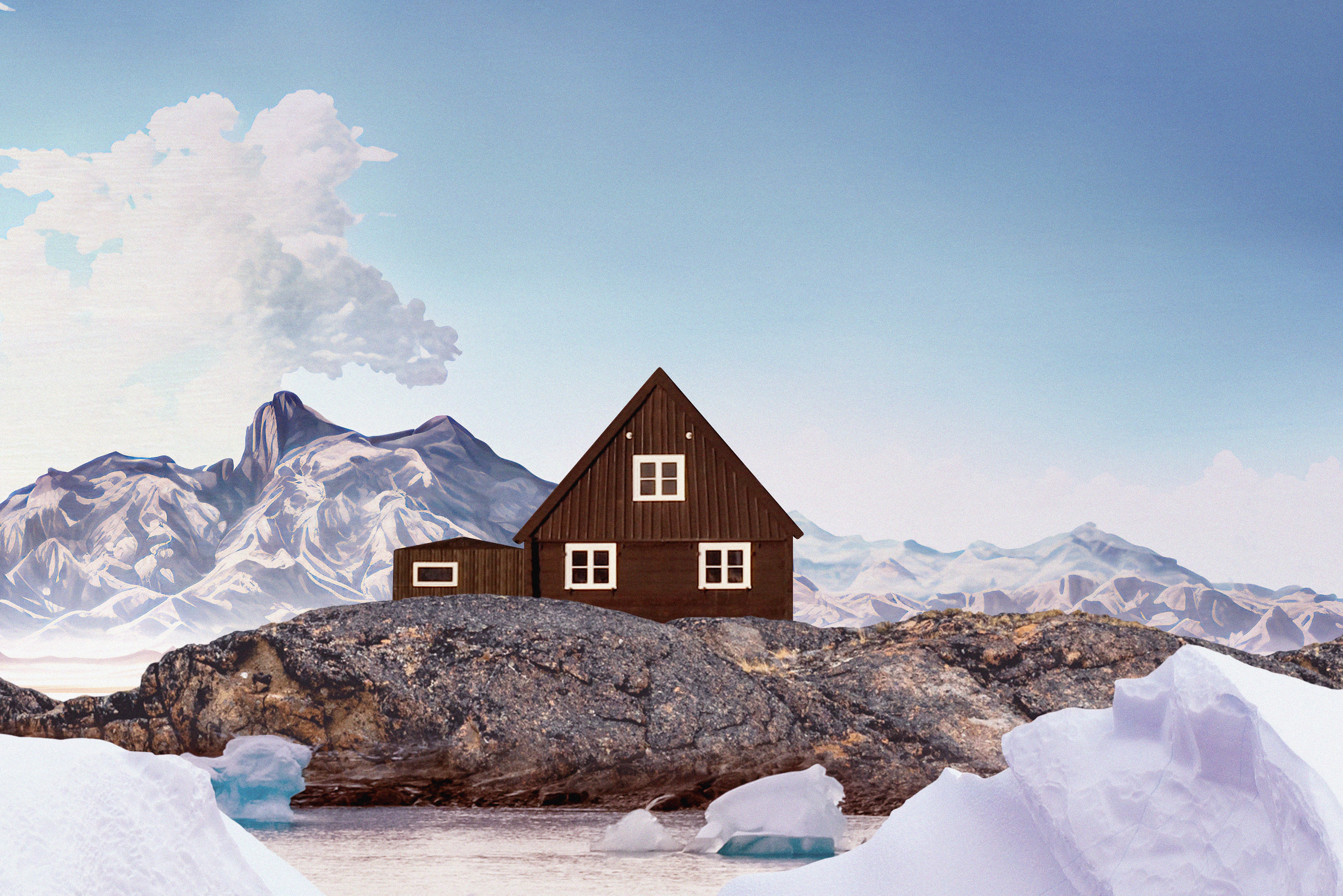
InsideHook: How does coming to such a remote location impact the dining experience for your guests?
Poul Andrias Ziska: I think it definitely adds to the experience. The most important thing is the people you’re enjoying your meal with. You can have an incredible meal with a horrible person and you won’t enjoy the meal, and vice versa. But second to that, I would say that location is something that really can add to the experience. Our guests travel through an ice field and arrive at a small little village. Maybe they’ve seen a whale on the way or driven by the fish factory or shrimp factory in the city or town next to our village. Then being able to eat that on a plate, I think that definitely adds to the experience.
Does the location also have an impact on the taste of your food?
One hundred percent. If you’re able to create an experience or a menu that can’t be duplicated anywhere else in the world, I think that’s a pretty cool thing to do. In both Greenland and on the Faroe Islands, there are unique food cultures, and we’re so close to the raw materials it’s impossible to replicate. For example, we serve sea urchins on the Faroe Islands. We drive out and get them out of the ocean every day. From the moment we pick them up until we serve them in the restaurant, let’s say three hours later, there’s a difference in flavor. Imagine that and then think about having to ship them in a plane for days. Obviously, there will be a difference. Quality is very often equal to time, which is equal to distance. The sea urchin is a good example of that.
Williamsburg Pizza’s Nino Coniglio Talks Di Fara, Legacy and Hating Buffalo Chicken
Coniglio, the first non-family member to train under Domenico DeMarco at Di Fara, now has his own pizza empire extending to OmahaGiven KOKS’s level of freshness, do you roll your eyes when you see other “farm-to-table” restaurants?
I don’t know. I don’t really try to think too much about what other people are doing. I tend to focus on what I’m doing. I was watching Anthony Bourdain and he said, “What the fuck is this farm-to-table? Everything that’s served at a restaurant most likely comes from a farm.” For me, it’s more about getting in touch with your surroundings and trying to understand where you come from and your environment. It’s also about trying to make your guests understand that and respect that and creating a more holistic experience where you guide them through your little part of the world. I get more fulfilled being close to where everything comes from.
Given where you work and live, do you ever miss the ability to grab some fast food?
Fast food…We just spent four days after coming back from Greenland in Copenhagen. I ate a lot of kebabs. It was something I hadn’t had for quite some time. Not that I particularly missed it, but once it was in front of me it was like, “Oh, shit, okay, let’s just have it.” I’ve never been to Taco Bell, but we have Burger King on the Faroe Islands. I usually don’t go there, but we do have bad pizzerias that serve super greasy burgers and stuff like that. I like to go for that. I understand why Burger King and McDonald’s are popular. It is tasty food, but I rarely have a good feeling after eating a meal at one of those places. But I do it every now and then. It’s not like I’m eating sea urchins for dinner every night. I’m just a normal person. I can definitely appreciate some melted cheese.
How do you think the film compares to food programming like Kitchen Nightmares or Beat Bobby Flay?
I know Kitchen Nightmares and some of those shows, but I don’t watch much myself. The film is just an honest insight into how we work, how we operate and what is required to execute a menu that’s, I’m not going to perfect, of a very, very high standard. It requires a lot from people. So we believe in treating people well and finding a perfect balance. Maybe it’s not as entertaining to watch as Kitchen Nightmares where someone is shouting and throwing things or people are having have mental breakdown. But that’s the reality of how we run our restaurants and how I see restaurants moving forward, which I would say is a good trend.
Is there a takeaway you hope viewers of the documentary will walk away with?
That’s a good question. I think it’s difficult to answer exactly. I hope people who watch the movie can have an understanding of the work that we do, but also the way of life in Greenland and in small villages like this. Also, that food is not just something you get out of a cooler in a convenience store or in a supermarket. It has to be hunted and killed and butchered and and so on and so on. As a chef, I hope people have a better understanding of how it is to live and to operate in places like Greenland.
Join America's Fastest Growing Spirits Newsletter THE SPILL. Unlock all the reviews, recipes and revelry — and get 15% off award-winning La Tierra de Acre Mezcal.
